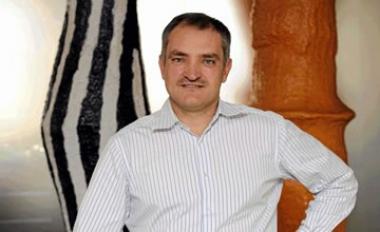Resilient Property Income Fund harnesses the power of diversity
 Resilient CEO Des de Beer attributed the fund’s strong growth to forward planning, conservative interest rate hedging, and the “dominance” of its centres.
Resilient CEO Des de Beer attributed the fund’s strong growth to forward planning, conservative interest rate hedging, and the “dominance” of its centres.
The “Resilient group” of listed property funds has outperformed other established property groups thanks to the dominance of the funds in the market segments they focus on, according to Ndabe Mkhize, portfolio manager at Stanlib.
The Resilient family firms, which hold stakes in each other, include Resilient Property Income Fund, Capital Property Fund, Fortress Income Fund, New Europe Property Investments (Nepi) and Rockcastle Global Real Estate Company.
“Generally speaking, their growth as a group has been head and shoulders above other similar-sized groups,” Mr Mkhize said last week, adding that the companies’ growth forecasts pointed to a continuation of this trend.
Resilient focuses mainly on nonmetropolitan retail properties in SA and Nigeria, while Capital has a bias towards local logistics, Fortress focuses on rural retail near commuter transport nodes, Nepi operates mainly in Romania, and Rockcastle targets global property.
Mr Mkhize said the “engine” of the Resilient group of funds was the three retail-focused stocks — Resilient, Nepi and Fortress — which were each dominant in their respective markets.
Nepi, which had proved a good investment for the Resilient group partly due to currency factors, had a strong pipeline of developments that were yield-enhancing and were financed by competitive debt.
“Nepi is dominant in Romania, Resilient is dominant in the nonmetropolitan areas, and Fortress is dominant along transport nodes.” He said Capital, which had investments in Nepi and Fortress, could “piggyback on their sister funds”.
The group’s management teams had “also been cautious to not just do any developments for the sake of doing developments — but to focus on those where they believe they can dominate their area and not be vulnerable to competition”.
Resilient CEO Des de Beer attributed the fund’s strong growth to forward planning, conservative interest rate hedging, and the “dominance” of its centres.
“A lot of these strategies we put in place five years ago — we knew the South African market was a bit overheated, and we saw deep value in places like Romania, so we invested massively there at the time. At the time our investments in Nepi were yield-dilutionary for us — now we are getting the benefits,” he said.
Resilient was not targeting further retail developments in SA, which the fund sees as a saturated market. Mr de Beer said the fund’s focus was on major extension projects and on Nigeria.
Resilient, with partners Standard Bank and Shoprite, is developing retail assets in predominantly nonmetropolitan areas in Nigeria where there is little competition. The fund recently began the construction of a mall in Warri.
Mr de Beer said Nigeria was still “untouched” although places such as Lagos were being increasingly targeted. There was “less than 120,000m² of formal retail space in Nigeria, including Lagos. That’s less retail space than Sandton City”.
He said the group was also “putting a lot of time and effort” into AltX-listed Rockcastle.












